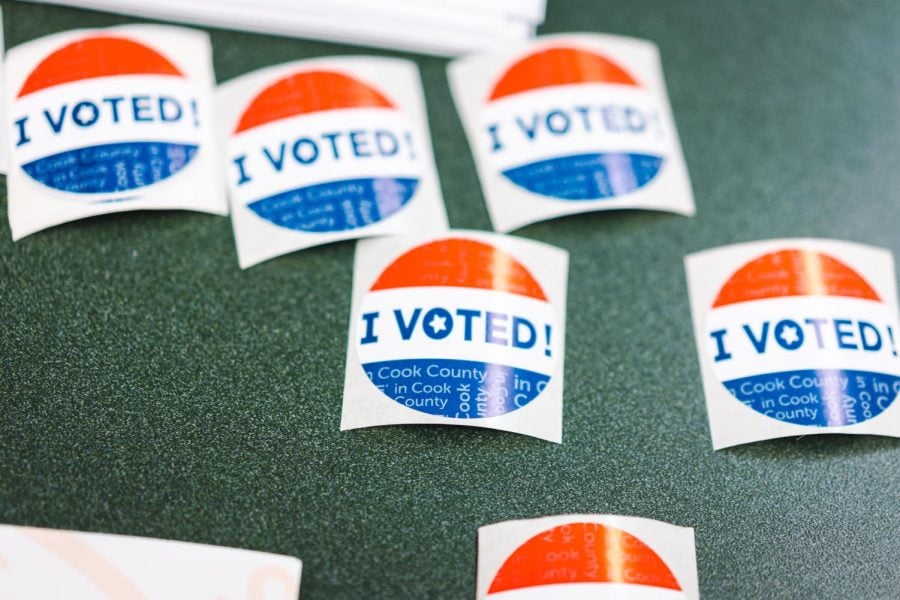Evanston community organizers and Northwestern faculty discuss impacts of midterm elections
Jonah Elkowitz/Daily Senior Staffer
Members of Evanston community organizations and Northwestern political science professor discuss key issues in midterm elections this year, including reproductive rights and the environment.
November 17, 2022
As the last states finish counting ballots, the dust has settled for the majority of the races in this year’s midterm elections.
In Illinois, incumbent Gov. J.B. Pritzker fended off a challenge from Republican candidate state Sen. Darren Bailey. The Democrats also won two seats on the state Supreme Court, expanding their majority on the bench.
Nationally, the Democratic Party retained leadership of the Senate but lost control of the House.
Laura Tanner, co-founder and co-leader of grassroots progressive group Indivisible Evanston, said the Dobbs v. Jackson Women’s Health Organization ruling that revoked the constitutional right to abortion played a crucial role in many races –– including the election of two democrats to the state Supreme Court.
“The Republicans bet on the wrong horse,” Tanner said. “They bet that they could overturn Roe (v. Wade), and all of their voters would ride that coattail.”
Jerry Herst, a member of environmental group Citizens’ Greener Evanston’s board, said climate change was also a key issue for Illinois voters.
Both the election of Pritzker and the two Democratic state Supreme Court justices are important victories for the environment because they will help implement and uphold policies such as Pritzker’s Climate and Equitable Jobs Act, Herst said.
In terms of ballot measures, Cook County property owners approved a tax hike for forest preserves, which will raise property taxes. Owners will pay $1.50 per month on average to help protect the forest preserves, acquire new land and restore wildlife habitats.
“(The forest preserve) give nature a leg up in our county,” Herst said. “(With this ballot measure), we’ll be able to do the kinds of maintenance, expansion and programming it needs to survive and to be there for all the residents in the area.”
Tanner and Herst both said they are happy that Evanston will be the first city in Illinois to adopt ranked-choice voting, which passed with more than 80% of the vote.
The new voting process, which is set to go into effect in 2025, will ask voters to rank candidates based on preference instead of selecting a single candidate.
Herst said ranked-choice voting will make the elections more civil because candidates will try to appeal to the general electorate outside their base.
Midterm elections have historically disadvantaged the political party in power of the White House, but political science Prof. Laurel Harbridge-Yong said three factors helped the Democrats combat those trends: the fight for reproductive rights, a focus on democratic norms and election integrity and more extreme Republican candidates in several battleground states.
“Usually, the party out of power would be criticizing the party in power and offering their alternatives,” Harbridge-Yong said. “Though, because of the Supreme Court decision (on abortion), all of a sudden Republicans as a national party have done something unpopular.”
Still, divided control of Congress will make it very difficult for Democrats to advance their legislative agenda, she added.
Tanner, on the other hand, remains optimistic about the second half of President Joe Biden’s term and the 2024 election.
“The results of this election indicate that the American people care about ethics and about having a functioning democracy,” Tanner said. “They care about having rational people represent them and the government.”
Email: caseyhe2026@u.northwestern.edu
Twitter: @caseeey_he
Related Stories:
— Incumbent Gov. J.B. Pritzker projected to win gubernatorial race
— ‘I hope American voices get heard’: Students react to 2022 midterm election results
— Captured: Wildcats cast their votes for the 2022 midterm elections



